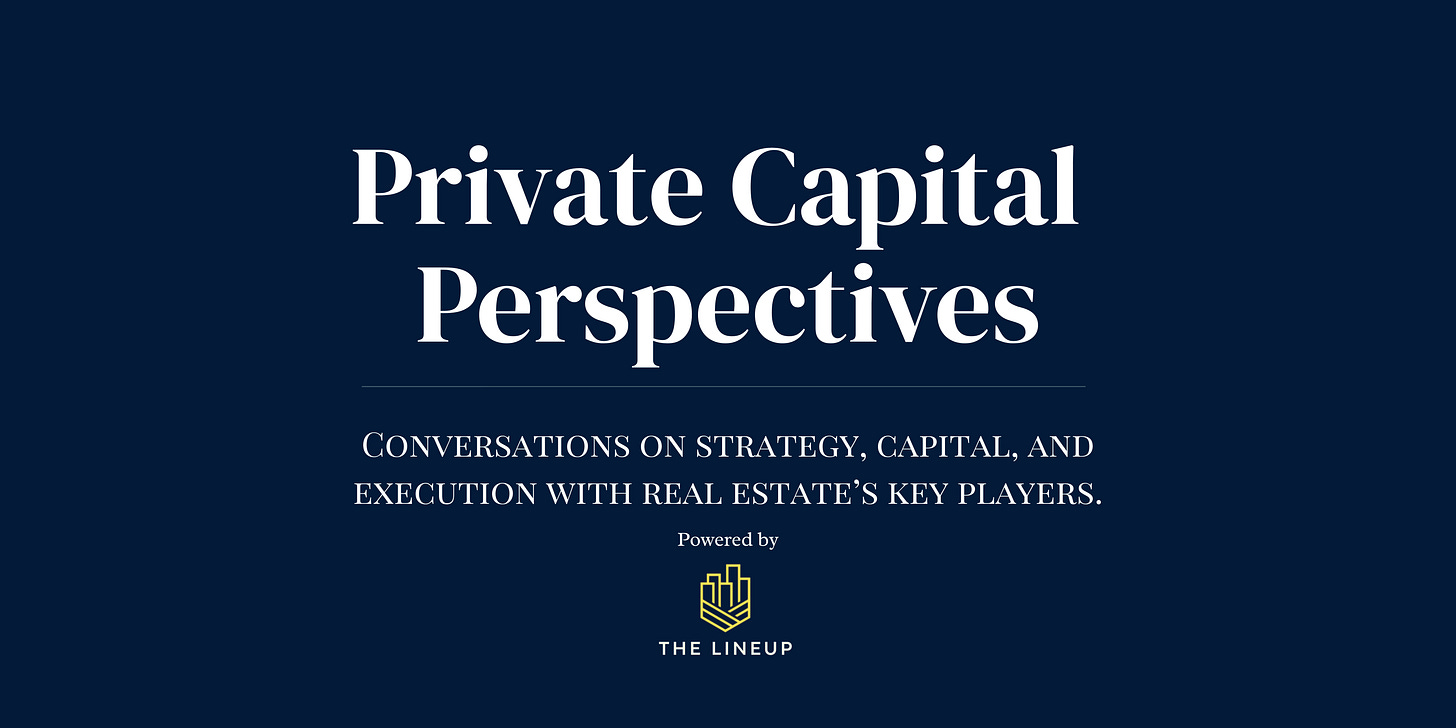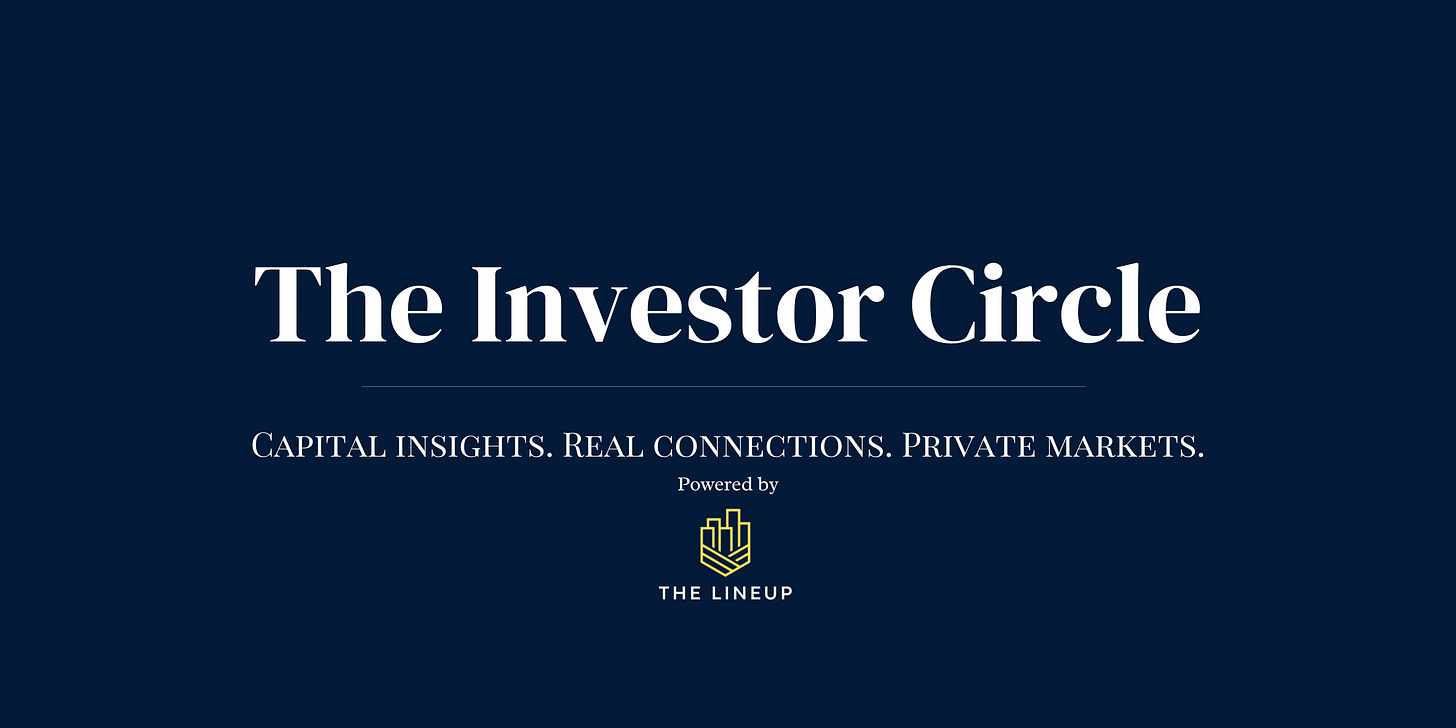What Smart Capital Is Doing Now: Lessons from the Field
Private Capital Perspectives, a series from The LineUp - Insights from real conversations with today’s direct real estate investors
Recent Popular Posts
Welcome to the first edition of Private Capital Perspectives — a new series from The LineUp that brings you real insights from family offices, LPs, and direct investors navigating today’s real estate markets
.
Over the past several weeks, we’ve spoken with several family office and private investors across the real estate spectrum—LPs, co-GPs, and direct lenders. The conversations were candid and we were surprised to hear some things and were not surprised to hear other things. There’s no panic, but there’s a clear shift in tone: away from aggressive growth and toward discipline, selectivity, and downside protection. These changes have been slowly developing for the past 3 years and now are becoming more pronounced.
These active investors aren’t exiting real estate. Far from it. But they’re moving with greater awareness of the landscape and being more thoughtful in their decision making. They’re asking harder questions, pulling back from risky geographies, and focusing more on how—and with whom—they invest than ever before.
Here’s what we heard:
1. Return of Capital Is Taking Center Stage
“Our family has invested directly in deals for the past 10 years. Unfortunately we have many deals where the return of capital is either slow, or possibly, not going to happen. So we are being extra cautious about our next direct investments as limited partners. Underwriting deals and sponsors much more closely. We continue to like housing, notably multifamily and short term rentals for our portfolio.”
This is a sentiment we’re hearing more frequently in 2025. Many families that leaned heavily into direct deals from 2019–2022 are now navigating delayed distributions, drawn-out exits, and sponsor silence. The response isn’t necessarily to pull out—it’s to dig deeper. Today, diligence is extending beyond the asset and market into the sponsor’s financials, track record, and communication style.
Multifamily and short-term rentals remain favored sectors for this family office, but they are much more patient—and skeptical—than they were a few years ago.
2. Private Debt Is Stepping into the Spotlight
“In terms of real estate, our family office has moved from more private equity investments to private debt. We are looking to deploy a significant portion of our investment portfolio into direct private debt investments. Most recently our family office hired an executive to head up this new initiative.”
With valuations uncertain and the equity upside less predictable, families are increasingly choosing to own the paper instead of the property. Structured loans, preferred equity, and senior secured debt become the preferred investments of the day as lower-volatility pathways to generate income and preserve capital.
Some offices are formalizing this pivot by building internal lending platforms or hiring experienced operators to lead the charge. This move reflects a larger theme: more control, clearer terms, and better collateralization are winning out over pro forma-driven equity IRRs.
Are you seeing this shift?
From Blackstone’s new $8 billion Real Estate Debt Strategies V fund to family offices with $80 million funds everyone is looking at this trend as an option for capital preservation and yield.
3. Local, Known, and Controlled Is the New Playbook
“Our real estate direct investments are focused on our core markets right now. We have done many co-general partner investments in the past and continue to do those. But our selectivity has gone way up due to concerns about the economy and liquidity since we are still in many deals syndicated in the early 2020s.”
This is a pattern we’re seeing across the board: investors are concentrating capital in markets they know deeply and partners they trust fully. Co-GP structures still have appeal, but the bar is higher. Liquidity risk, duration mismatches, and macro headwinds are forcing investors to prioritize governance, visibility, and shorter feedback loops. But all of these are elements of private investment markets and as investors our exposure to them has increased.
It’s not a retreat—it’s a recalibration.
What This Means for You
Whether you're a sponsor, advisor, or fellow investor, the message is clear:
Investors are not afraid of risk—but they expect to be compensated for it.
Alignment matters more than ever. So as a GP make sure you provide the very best in communication and transparency.
There’s capital on the sidelines—but it’s moving only when the structure, people, and downside all check out.
Join The Investor Circle
Want to connect with other serious investors, family offices, and deal operators focused on real estate’s next chapter? The Investor Circle is a private community we’re building for conversations like these—centered around real strategies, smart capital, and the people driving both.
→ Apply to join The Investor Circle and get access to curated insights, deal conversations, and direct dialogue with other members of our growing network.
Thanks for reading. Let us know what you think in the comments or just reply to this email and I’ll receive it!
Cheers,
John







